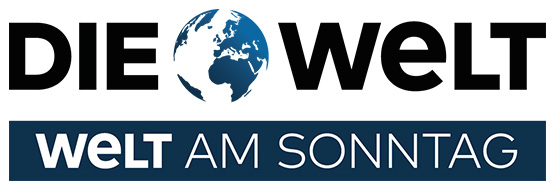Contact
gamesright
An der Alster 6
20099 Hamburg
Phone: 040 / 237 24 33 749
Fax: 040 / 81 987 28 7
Legal
Legal
Enough gambling. GET YOUR MONEY BACK!
Losses from online gambling can be reclaimed.
With our experience, this can be done quickly and reliably. That's why we cover all costs. We only receive a commission if the project is successful. This means there is no financial risk for you.
- Simple process and quick processing
- Fair and transparent
- Recover losses from up to 10 years
Losses from online gambling can be reclaimed.
- Simple process and quick processing
- Fair and transparent
- Recover losses from up to 10 years
With our experience, this can be done quickly and reliably. That's why we cover all costs. We only receive a commission if the project is successful. This means there is no financial risk for you.
In just a few steps and without risk! CLAIM YOUR MONEY BACK
Please give us a little information. You are not entering into any obligation!
We will contact you to discuss further steps.
Current Judgments
Betkick - almost €12,000
The Higher Regional Court of Dresden has ordered the sports betting provider to repay the winnings (case number) 13 U 1753/22.N1 Interactive- 17.915,00 €
The Higher Regional Court of Oldenburg has ordered the provider of various online casinos to repay the money.Online Poker and Black Jack
In its ruling of October 31 - 19 U 51/22, the Higher Regional Court of Cologne ruled that an online poker and blackjack provider must compensate the player for losses of up to ten years.Online Casinos ("Slots") - 19.250 €
The Higher Regional Court of Dresden (Leipzig) ruled on October 6 - 10 U 736/22 that a provider of online casinos ("slots") must reimburse the player for losses of EUR 19,250.Online Sports Betting - 93.000 €
In its judgment of September 2nd - 37 O 317/20, the Cologne Regional Court ruled that an online sports betting provider must reimburse the player around EUR 93,000 in betting losses.Slots4League - 9,700 €
Lapalingo was ordered to repay €9,700. Rabbit Entertainment Ltd. was ordered to repay because it should not have offered gambling on the Internet in the first place. This was the decision of the Meiningen Regional Court (February 3, 2021, file number 2 O 616/20).Mr Green - €25,283
Mr Green has to pay back €25,283. The Traunstein Regional Court ordered the online casino to pay back the money on October 8, 2020 (case number 20 O 3808/19).Why Gamesright? Better with us
- Chances of success
- Financial risk
- Duration
- Cost
sue yourself
- small amount
- high
- > 1 year
- high
gamesright*
- high
- no
- ~ 1 week (for immediate compensation)
otherwise Ø 8 months - pure profit sharing
with lawyer
without specialization
- medium
- medium
- > 1 year
- high
sue yourself
- Chances of successsmall amount
- Financial riskhigh
- Duration> 1 year
- Costhigh
gamesright*
- Chances of successhigh
- Financial riskno
- Duration~ 1 week (for immediate compensation)
otherwise Ø 8 months - Costpure profit sharing
with lawyer
without specialization
- Chances of successmedium
- Financial riskmedium
- Duration> 1 year
- Costhigh
Safe through the process Our advantages
Get back your money lost on online gambling or sports betting!
gamesright finances all costs in advance and only receives a portion of the repaid amount if the case is successful. If a legal dispute is lost, we cover the costs so that the player does not incur any costs.
With a few exceptions, online casinos are not permitted in Germany. This is stated in Section 4 of the State Treaty on Gambling.
Public gambling is even prohibited under Section 284 of the Criminal Code unless it has been officially approved.
Even advertising for online gambling is not permitted if it gives the false impression that the games offered are legal.
we support you! SERVICES
Gambling on the Internet is illegal without a permit. Most sports betting providers did not have a valid license and are still violating licensing requirements today.
Gambling are games for money. The players want to win a lot of money.
Casino Games:
• Slot games
• Card games like poker and blackjack
• Roulette
• online Lotto and Keno
Also Online sports betting are games of chance. Betting on football matches or horse races.

No cost risk thanks to our financing
Individual case advice from specialized lawyers*
Transparent payout
We finance your rights e.g. against the following providers:












Sports betting: The dangerous business of addiction
Online sports betting generates billions in Germany. Specialized companies want to reclaim the money for those affected.
We finance your rights e.g. against the following providers:
Tipico
MrGreen
bet-at-home
Pokerstars
Unibet
Winamax
Lottohelden
Partypoker
Karamba
Betsson
Sunmaker
Boo Casino
Bwin
bet365
Lapalingo
Rant Casino
Zetcasino
Wetten.com
MrGreen | bet-at-home
Pokerstars | Tipico
Karamba | Lotto Heroes
Betsson-Online | Party Poker
bet365 |
Bwin | Rant Casino
Sunmaker | Unibet
Zetcasino | Winamax
Boo Casino | Wetten.com
From the press TOP ARTICLES

News from the Blog


GET YOUR MONEY IN 3 STEPS IT'S THAT EASY
State Treaty on Gambling GlüStV
State Treaty on Gambling
With the new State Treaty on Gambling, certain online gambling games in Germany can be granted a license in the future. Strict conditions must be met. The industry itself complains that the payout rates can hardly be met. This is because online gambling is taxed more heavily than local casinos.
Losses from the period before July 1, 2021 can be reclaimed by affected players even if the provider has since received a license or should receive a license in the future.
FREQUENTLY ASKED QUESTIONS FAQs
You will usually receive feedback within a few days.
Since we cover all costs, you have no risk.
Yes, in some cases we will buy your case completely.
Depending on the circumstances, we can claim losses for up to 10 years.
A good way to obtain the documents is through a GDPR query. With the data, we can calculate your losses precisely.
Here you will find a detailed description of the procedure.
https://www.datenanfragen.de/blog/musterbrief-dsgvo-anfrage-auskunft/
We cover all costs and only get involved if the case is successful. There are no hidden costs or unexpected fees.
There are no legal consequences from our cooperation.
As a rule, you will receive your money after 2-8 months. In case of buying off the losses on our site, you will receive your money within a few days.
Gamesright does not provide legal services (RDG), does not advise on legal matters and does not act on behalf of others. We provide specialized lawyers and finance all legal costs.
No, our funding commitment is independent of this. We want to give everyone access to their rights.
No, you have to not hand back.
In this case, it depends on the provider you played with. Please contact us and we will give you feedback on your individual case.
No, there is no minimum limit.
Bill 55 does exist, but you shouldn't let it put you off claiming your money back. As always, it depends on your individual case, so just get in touch with us.
Yes, you can still claim your money back from the provider.

GAMESRIGHT ABOUT US
We want everyone to get their losses from online casinos and sports betting refunded.
To this end, it must be possible to obtain help from specialized lawyers* without any costs or risks.
We have already placed experts with over 1,000 players and pre-finance all costs incurred in reclaiming money from gambling providers.
*We do not provide legal services and do not offer our own legal advice.










